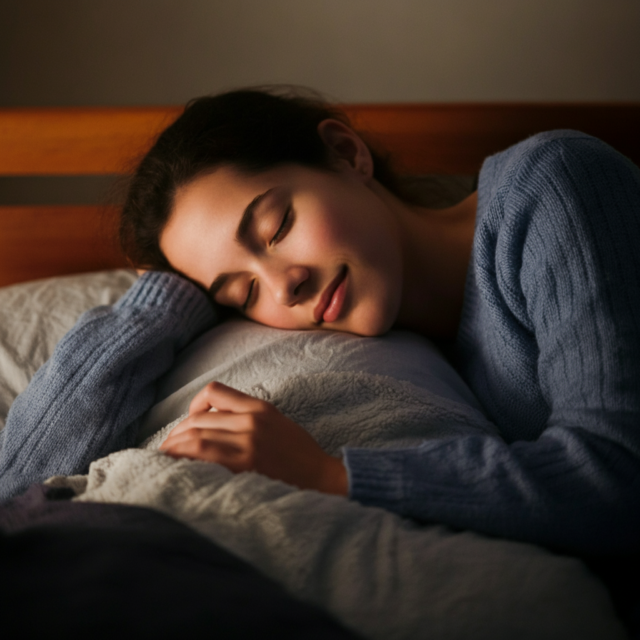A good night’s better sleep can seem like magic. You wake up feeling renewed, your spirits lifted and your attention clearer. But in our speedy, modern world, many of us find it hard to sleep as well as our bodies require. If you’ve been tossing and turning or stirring awake more fatigued than when you hit the pillow, fear not! We know what’s shown to help you sleep better and get sound, restorative rest night after night. Here are 10 practical tips from this guide that will help you establish healthy sleep habits so you can finally get the sleep you deserve.
Whether you’re struggling with insomnia, waking up throughout the night, or just want to optimize your sleep routine, these tips will empower you to take control of your sleep habits.
Tip 1: Keep a Consistent Sleeping Routine
The best thing you can do to get better quality of sleep is to go to bed and wake up around the same time each day — even on the weekends. Why is this important? Your body also runs on a natural cycle known as the circadian rhythm, which acts like an internal clock. When you get a regular sleep schedule, your body can tell when to release sleep-inducing hormones like melatonin and when it is time to wake you up naturally.
How to implement this tip:
- Choose a bedtime for 7-9 hours of sleep.
- Setting an alarm for more than your wake-up call — to know when you need to start wrapping up your day.
- Be patient. It may take a week or two for your body to adapt, but consistency will help you fall asleep more easily over time.
For example: If you sleep in on weekends, you may feel groggy from the Monday “sleep hangover.” By committing to a specific wake-up time each day, you limit these weekly disruptions and feel stronger throughout the week.
Tip 2: Dress your bedroom in a calm way
Your sleep environment has a massive influence on your ability to fall asleep and stay asleep. If your bedroom isn’t a tranquil, peaceful environment, it could be standing in the way of good sleep quality.
Here’s what to do to your bedroom setup:
- Chill out: A bedroom temperature of 60-67°F (15-19°C) allows your body to rest and set up for sleep.
- Block out light: Block light out with blackout curtains or a sleep mask. Even brief exposures to light can confuse your brain into believing it’s day.
- Reduce noise: You might use earplugs or a white noise machine to mask disruptive sounds.
- Prioritize comfort: A good mattress and cushy pillows do wonders.
Example: Imagine trying to sleep in a stuffy, cluttered room vs. a clean, quiet, and temperature-controlled space. The difference in relaxation is like night and day!
Tip 3: Avoid screens before bed
That late-night scroll through social media or another episode on Netflix might have you awake even longer than you think. Screens, blue light from screens, will deceive your brain into thinking it’s still daytime. This suppresses melatonin production, making it more difficult for you to fall asleep.
What to do instead:
- Turn off devices at least 1 hour before bed.
- If you must use screens, activate blue-light filters or wear blue-light blocking glasses.
- Take that screen-free time to read a book, journal or listen to calming music.
For instance, replace your nightly TikTok scroll with a calming bedtime routine, such as reading a physical book or practicing meditation. You’ll sink into sleep faster and feel less frayed.
Tip 4: Cut Back on Caffeine and Alcohol
Caffeine and alcohol both undermine sleep in stealthy ways. Caffeine, as you might guess, is a stimulant. Even if your afternoon latte seems innocent, the effects can stay in your system for hours. (Alcohol, on the other hand, may at first seem like a sleep aid, but interferes with REM sleep and can have you waking several times in the night.)
How to manage your intake:
- Steer clear of caffeine (coffee, tea, soda and even chocolate) after 2 p.m.
- If you’re consuming alcohol, keep it to moderate amounts, and allow your body time to process it, before bed.
- Choose herbal teas, such as chamomile or peppermint, as an evening calming beverage.
Try replacing that coffee with a quick walk or drink (over-) water instead” Example: You may feel you “need” caffeine to get through the afternoon slump, but replace that coffee with short walk or water instead. Your future, well-rested self will thank you!
Tip 5: Establish an Evening Routine That Helps You Wind Down
Routines tell your body it’s time to relax and prepare for sleep. Think of it as exercising before going to bed—but with your mind. Maintaining a regular night time habit can quiet your thoughts, ease your anxiety levels, and enable you to fall asleep much faster.
What to include in your plan:
- Gentle stretching or yoga.
- A hot bath or shower to reduce your body temperature afterwards.
- Mindfulness techniques like abdominal breathing or meditation apps.
- A worry journal to clear your mind of your issues.
For example: write for 20 minutes at the end of your working day, noting the tasks you have to do tomorrow to “empty” your brain of to-dos. With this small habit, you can avoid night-time overthinking.
Tip 6: Exercise Regularly
You may have already heard that exercise is good for your physical health, but did you know it could also help you sleep better? Exercise is a great way to charge you with energy throughout the day while also making sure your body is more than prepared to relax when night falls. Exercise regularly will help you sleep better (longer and deeper)
Tips for workouts that promote sleep:
- Try to get at least 30 minutes of moderate exercise on most days.
- Aim to complete workouts at least a few hours before going to bed, as exercising near bedtime can disrupt your body’s ability to wind down.
- Exercises, such as walking, swimming, or yoga, are especially beneficial for stress relief.
For instance: A mere half-hour of brisk walking can have your deep sleep at night improve. Add sunlight exposure — and some physical activity — in the morning, and you’ll speed up your circadian rhythm as well.
Tip 7: Monitor Your Diet
What and when you eat can have an outsized effect on your sleep. Rich meals or sugary treats near bedtime can cause discomfort or energy spikes that interfere with sleep. Some foods, by contrast, help you unwind.
How to eat for better sleep:
- Do not eat a big meal 2-3 hours before bed.
- Eat sleep-enhancing foods such as bananas, almonds, oatmeal or cherries, which are high in melatonin or magnesium.
- Drink enough but reduce the amount of liquids after 6 p.m. so you don’t wake up to urinate.
For instance, if you would eat chips in the late hours, consider a serving of oatmeal or nuts. It gives you nutrients that support melatonin production and make you feel calm.
Tip 8: Control Stress and Anxiety
Stress and anxiety are common sleep stealers. Racing thoughts, worries that wake you in the night and a general inability to “switch off” can make relaxation a challenge. Dealing with these feelings directly can help you reclaim your sleep.
Stress-minimizing tips for improved sleep:
- Keep a gratitude journal, or write stream of consciousness to clear mental clutter.
- Try guided meditations or breathing exercises before sleep.)
- If stress seems impossible to break away from, check in with a therapist or join a support group.
Try Example the “4-7-8” breathing technique, which means you inhale for 4 seconds, hold your breath for 7 seconds, and finally exhale for 8 seconds. It may slow your heart rate and calm the mind in preparation for sleep.
Tip 9: Limit Naps
Naps can be wonderfully refreshing, but taking long or late naps can disrupt your nighttime sleep. That’s because naps decrease your sleep drive, the accumulation of sleepiness that causes you to feel tired at the end of the day.
Nap smarter, not harder:
- Make them short, ideally for 10 to 20 minutes, so you don’t wake up groggy.
- Nap earlier in the day, and before 3 p.m.
- Only nap if you really need the rest.
For example: If you’re experiencing the afternoon slump, a power nap of around 15 minutes can refresh you without interfering with night’s sleep. You may also want to set an alarm to ensure you don’t sleep in.
Tip 10: Seek Help When You Need It
At times, nothing you do helps even if you tried all you could. Conditions such as insomnia, sleep apnea, or restless legs syndrome may require professional assistance. We encourage you to reach out for help if poor sleep is affecting your quality of life.
When to see a sleep specialist:
- If you often wake up gasping for breath, or snore loudly (indications you may have sleep apnea).
- If you can’t get to sleep or stay asleep for weeks, despite improving your lifestyle.
- It could be if you feel excessively sleepy during daytime notwithstanding how you sleep.
Example: A lot of untreated sleep apneas experience huge improvement on treatment, such as CPAP machines or other therapies. Talk to your doctor as first step.
Conclusion
Or, try our full guide for better sleep so it isn’t just a dream. With these 10 tips for better sleep, you can develop healthier habits and a comforting sleep environment that support your body’s natural cycles. Begin with small changes — switching off your phone a few minutes earlier or going to bed at a regular time — and scale up. With every step, you are nurturing your holistic health. It can take time, but you’ll begin to feel different in your energy, mood and focus.
Good sleep fuels a good life. Follow these tips and you’ll be on your way to sweeter dreams and brighter days! Sweet dreams! 🌙








